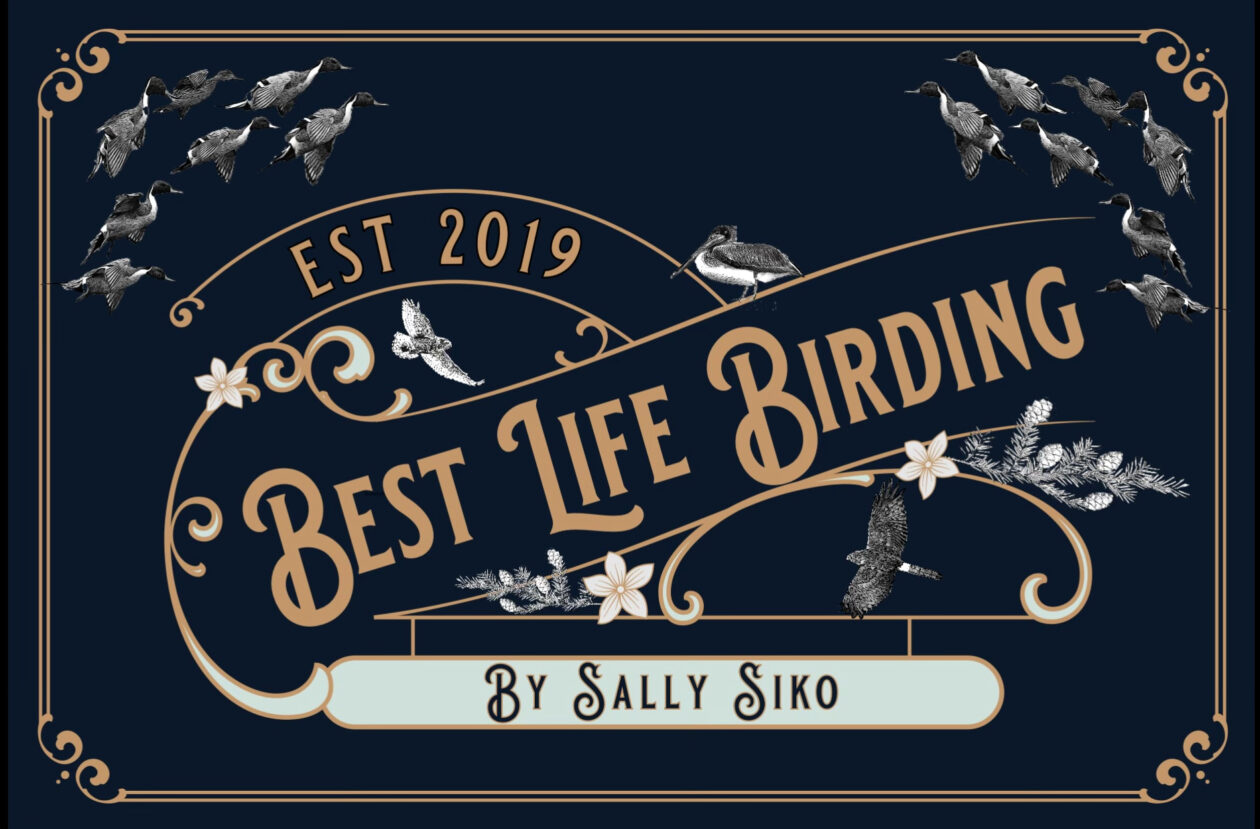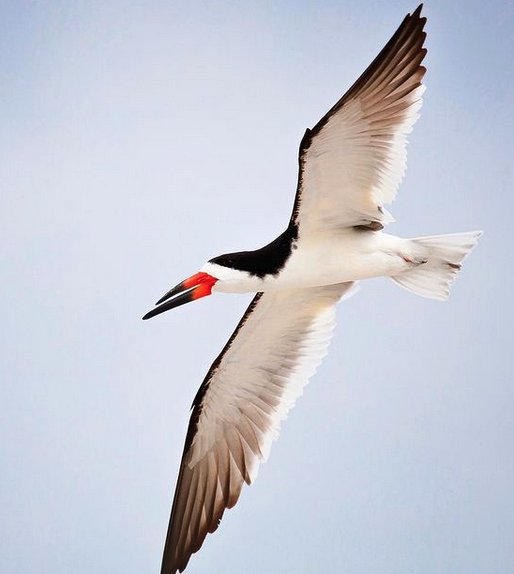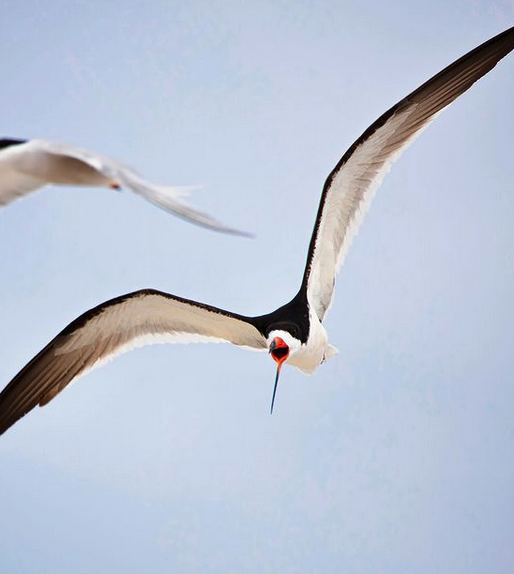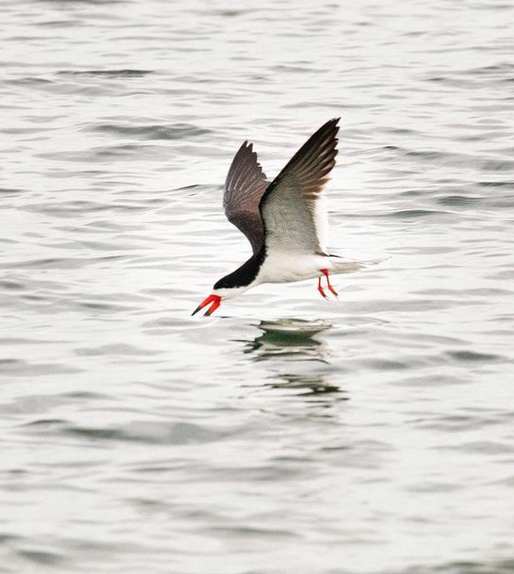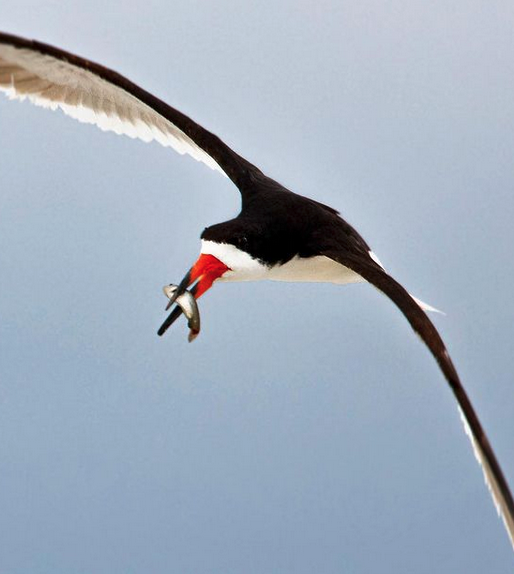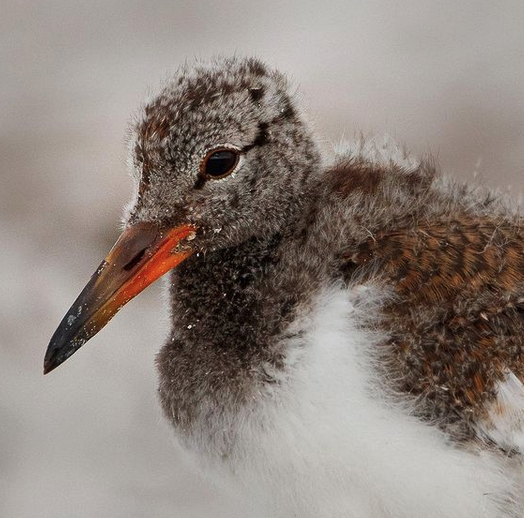Last month, I had the opportunity to visit a nesting colony of Black Skimmers on Wrightsville Beach NC.
It was so cool to be able to spend time with these interesting birds as they went about their business of raising their families on the beach.
I really like the look of the Skimmers.
With that bold black and white plumage, they are quite a handsome species indeed.
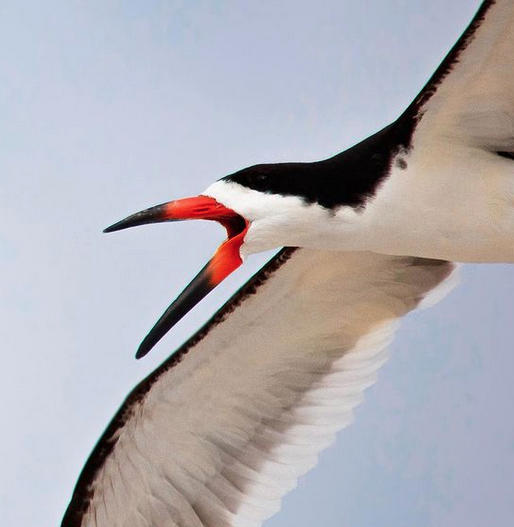
Nicknamed the ‘Toucan of the sea, the most striking feature of the Black Skimmer is it’s red-and-black bill.
As you can see here, they’ve got a lower mandible that juts out farther than does the upper.
When feeding, the Skimmer flies low over water with its beak open and lower mandible partially submerged.
When the lower part of the bill touches prey, such as a small fish, the bill’s upper mandible snaps down like a mousetrap, securing the bird’s meal.




Although you can find them soaring above the shorelines of most of our coastal beaches, Black Skimmers are most often spotted inland feeding in our inlets, estuaries and other slow moving bodies of water near the Atlantic.
Happily, Black Skimmers are a year round resident of North Carolina but they do appear to migrate locally to the southern coast of the Tarheel state during the cooler winter months.
Photos by @sally_siko of @birdwatching_nc on the full frame beast of an SLR, the mighty @canonusa
#5Ds
